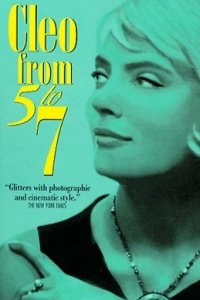In Agnés Varda’s 1962 take on the New Wave’s girl-in-Paris scenario, the imperially named Cléopatre Victoire (Corinne Marchand) lounges on a girly bed strewn with kittens, dollish wiglet perched atop her coif, as her stocky maid fusses. A pampered chanteuse who tells herself that “ugliness is a kind of death,” Cléo is a frilly basket case of bad faith: capricious, vain, and superstitious, an existentialist critique of the modern self as narcissistic pop star. She’s the kind of deeply superficial character Sofia Coppola thinks she makes movies about. Varda portrays a slice of Cléo’s life in faux real time, but this stretch from 5 to 7 p.m. is a far from random choice: It’s the last two hours Cléo must wait until hearing the results of a test for cancer. At first facing her mortality with pouty petulance, the singer wends her way through the city (Varda’s photojournalistic eye picking up vérité bits en route), eventually achieving a last-minute epiphany. With this, a more mature response to Breathless (Godard and Anna Karina make cameos as silent movie actors), Varda transforms the typical French cinema gamine into a complex, tragic figure: the girl who’s all too good at playing plaything, forced to face the hollowness of her youth. (NR) ED HALTER
Wed., Jan. 18, 7 p.m., 2012




